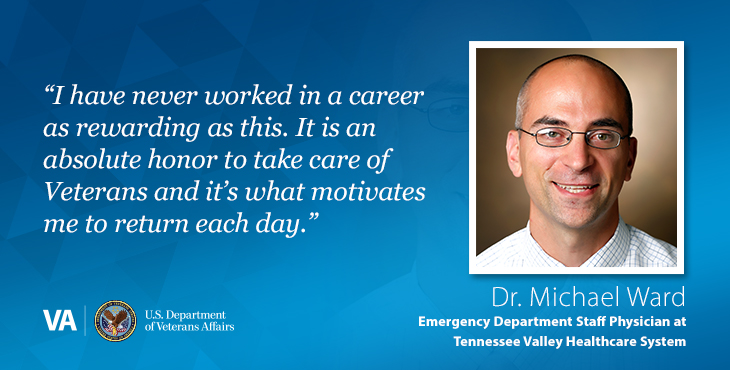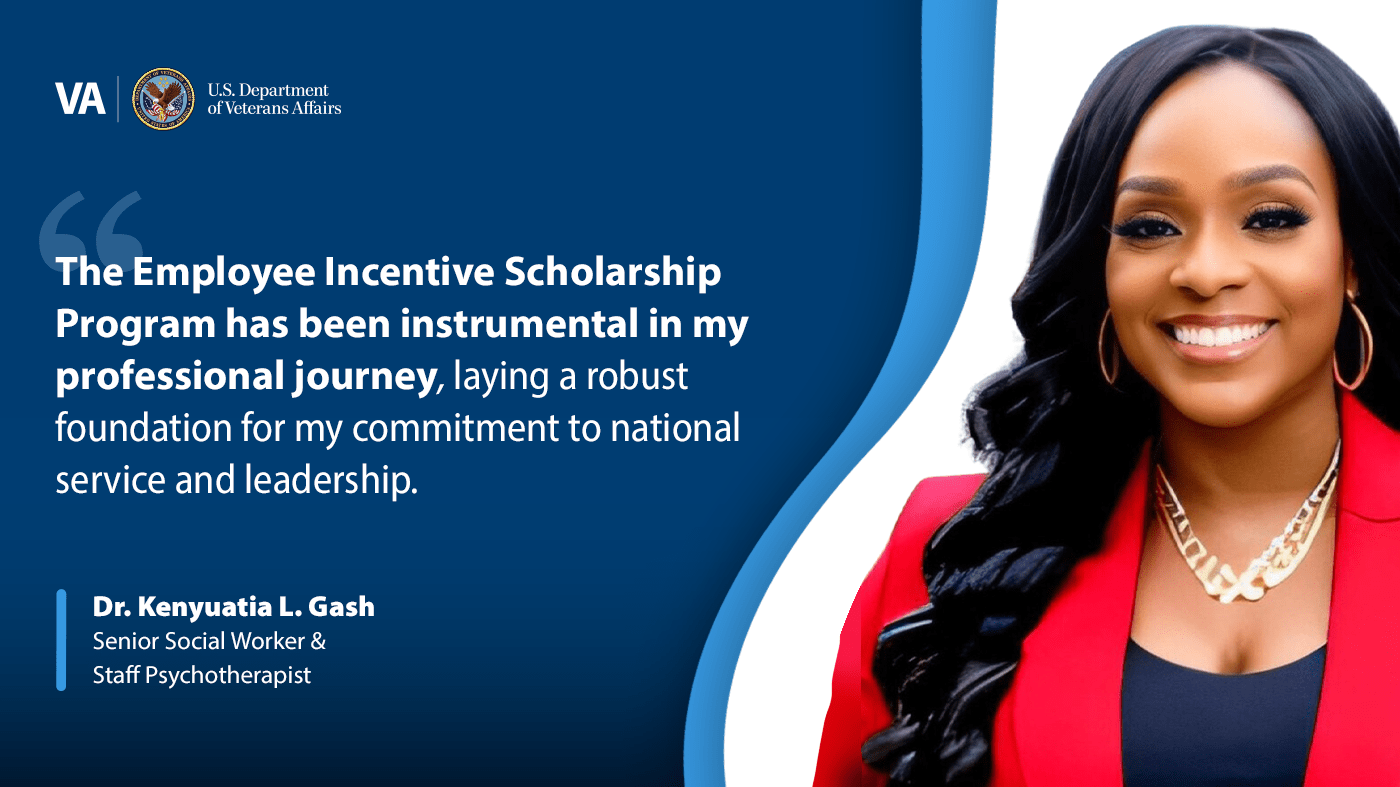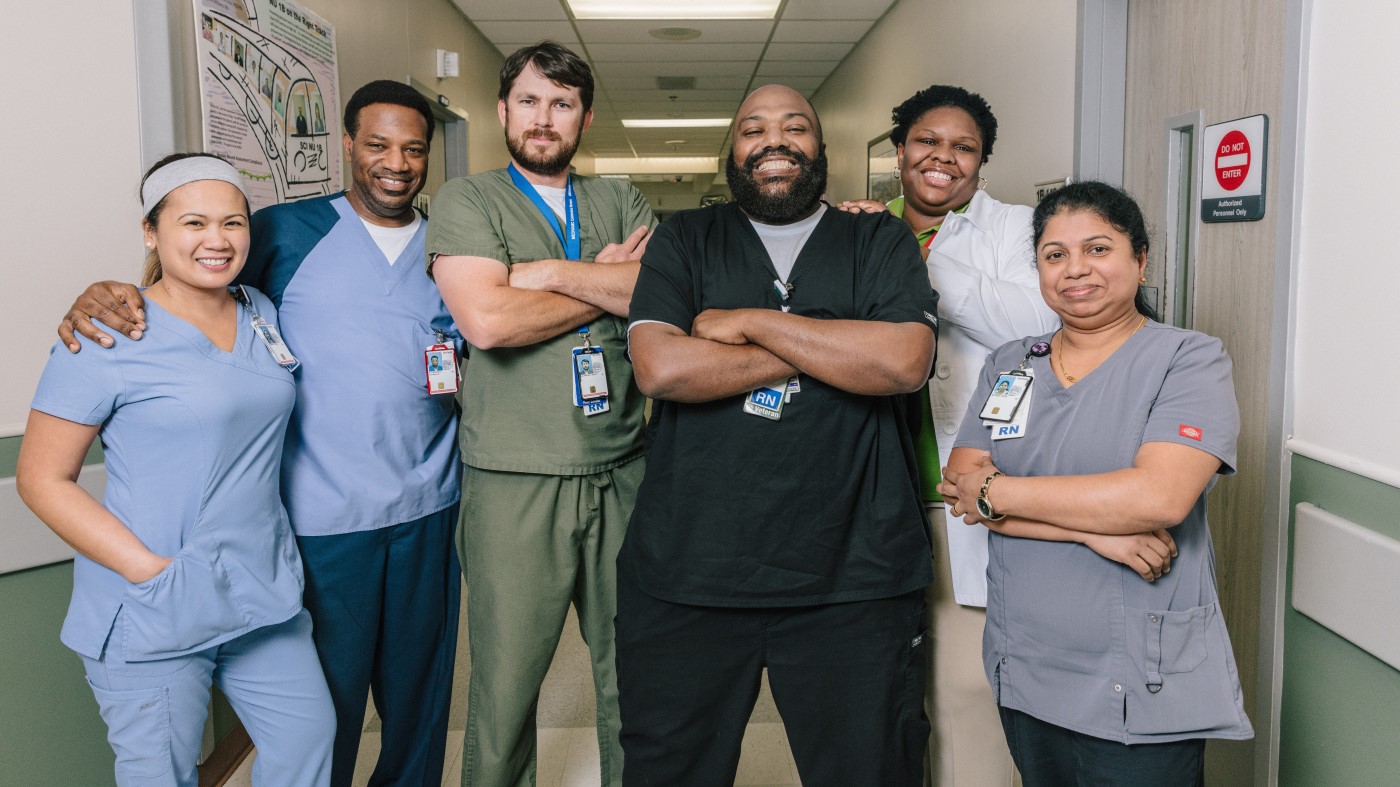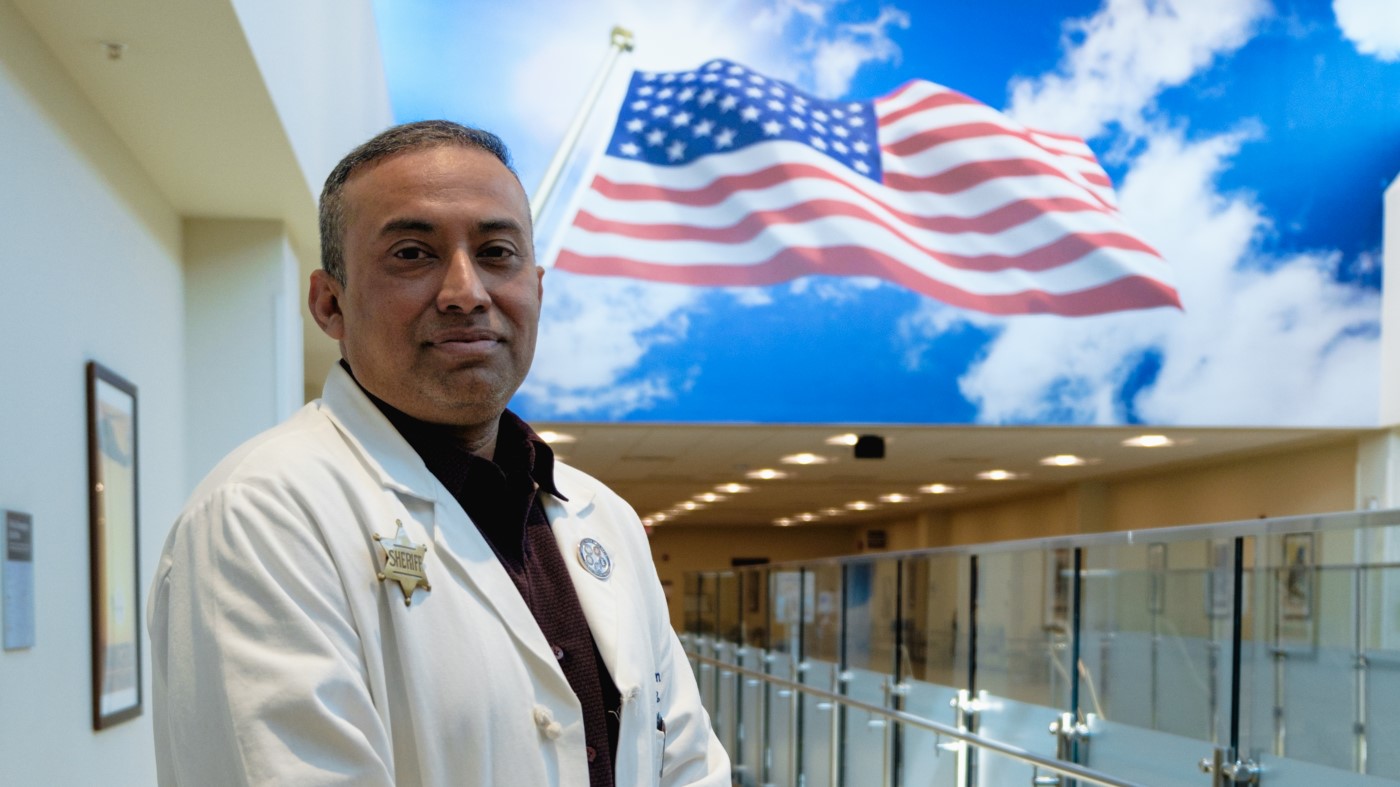With a career journey that began as a medical student and resident at the U.S. Department of Veteran Affairs (VA), Dr. Michael Ward has witnessed the transformative care options VA offers the nation’s Veterans and its healthcare providers.
Along with providing acute care for Veterans as a physician in the emergency department at the Tennessee Valley Healthcare System’s Nashville campus, Dr. Ward has used the time and resources available to him at VA to conduct research that can have a direct impact on emergency care systems, including the role telehealth plays in aiding Veterans with mental health concerns.
In this installment of our #ChooseVA Careers blog series, Dr. Ward talks about the abundant resources available to VA physicians in their treatment of acute cases and the rewarding nature of working with Veterans and VA staff.
What is your primary job at VA?
I work as an emergency physician caring for acutely sick Veterans presenting to the emergency department. This can range anywhere from a patient needing a medication refill to a Veteran suffering from cardiac arrest.
I like to think of my clinical specialty as a “master of uncertainty.” In emergency medicine, we have the following mantra “anyone, anywhere, anytime”–and it is very true! There is not a Veteran we cannot take care of. We may not be the specialists in a particular field, but we will figure out what to do for them. Whether I’m dealing with a Veteran trying to get reintegrated into VA after years away, treating a Veteran with chest pain or comforting a family member, we do it all in the VA emergency department!
I also conduct research on VA emergency care systems. This has introduced me to a number of other people caring for Veterans across the country. It has been very helpful for me to better understand what VA is and how it can be a tremendous service for our Veterans.
What was appealing about a career at VA?
I fell into this role somewhat accidentally. I previously rotated at the Atlanta and Cincinnati VA medical centers as a medical student and resident, respectively, but I never fully understood what it meant to be a part of VA.
When I came to Nashville, I was working at the academic affiliate and part of my role was to work at the Nashville VA. I quickly found that I really enjoyed working at VA. While there was a steep learning curve to understand how the VA system works, once I understood this, I realized that there were many resources for Veterans. I also learned that there were numerous opportunities for quality improvement and research that I was never aware of.
What is the most rewarding part of your job?
Day in and day out, it’s taking care of Veterans. I have never worked in a career as rewarding as this. It is an absolute honor to take care of Veterans and it’s what motivates me to return each day.
How has VA helped you grow in your career?
Beyond clinical work, I have become much more involved in research and quality improvement. I received an award to study transfers from VA emergency departments and the role telehealth plays in acute emergency care for Veterans with mental health complaints. In addition, I have opportunities to apply for funding that I would not have otherwise. I also review grants for VA. I have learned a tremendous amount about VA and how to strengthen my own research program by doing so.
What are a few key benefits of working at VA?
Clinically, I’m able to provide care for my patients that I wasn’t able to do in the private sector. Accessing specialty clinics, arranging follow-up and coordinating with other clinics is much simpler with VA. It makes what can otherwise be a chronic and frustrating problem, one in which you have tools to effectively deal with such clinical challenges.
Personally, as a part-time provider, I have the option of using VA benefits. I’ve been able to select the benefits package I prefer and have been able to select which policies are most useful to me and my family. I also participate in the retirement plan as well.
What do you find most surprising about working at VA?
That VA is a system with resources that can help care for your patients after they leave the emergency department. I can get back pain patients into physical therapy–sometimes immediately–and I can prevent an unnecessary admission for heart failure because I can quickly arrange cardiology follow-up. This makes my job so much easier and it allows me to focus on the emergency care of Veterans.
What story do you most often tell people about your work at VA?
As an emergency physician, we deal with a lot of sadness–delivering bad news, treating patients at some of their lowest points. This experience was the exact opposite. Recently, an elderly Veteran came in with shortness of breath. He was treated as an outpatient, but they couldn’t figure out what was going on. In the course of treating him, I found out that it was his wife’s 90th birthday. Hearing this, the department organized to get her a card, cake and present. We all went into their room and sang “Happy Birthday” while her husband conducted us. This brought tears to her eyes, and frankly, to the rest of our eyes as well. It was probably one of the happiest experiences I have ever had as an emergency physician!
What would you tell other emergency healthcare professionals who are interested in choosing a career at VA?
Coming to work at VA was a wonderful accident that I would never go back and change. I consider myself lucky to have this experience and it has changed my career!
What else would you like us to know about your experiences as a VA emergency healthcare professional?
Beyond the Veterans, I feel very lucky to work with the staff around me. Many are Veterans themselves and they all come from unique backgrounds. However, we all come together for one purpose–to care for Veterans during times of emergency.
Choose VA today
Develop your emergency medicine leadership skills as you care for Veterans: Choose a VA career as a physician today.
- EXPLORE a VA career as a physician.
- APPLY for an open position in emergency medicine near you.
- LEARN how to #ChooseVA at VAcareers.va.gov.
- VIEW other posts in our #ChooseVA Careers blog series.
Topics in this story
More Stories
Through programs like the Employee Incentive Scholarship Program (EISP), VA employees like Dr. Kenyuatia L. Gash have received financial support in pursuit of their education.
Providing better outcomes for diverse Veterans means finding ways to reach them, whether on a personal level or on a geographic level.
As a chief of staff, you’ll have many important responsibilities, but also an opportunity to make positive change for our team and the Veterans we serve.






